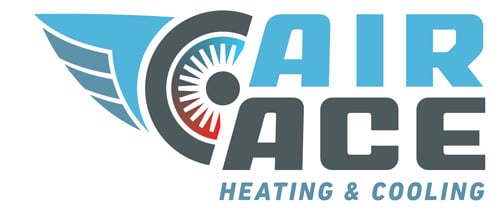Why Is My Air Conditioner Leaking Water?
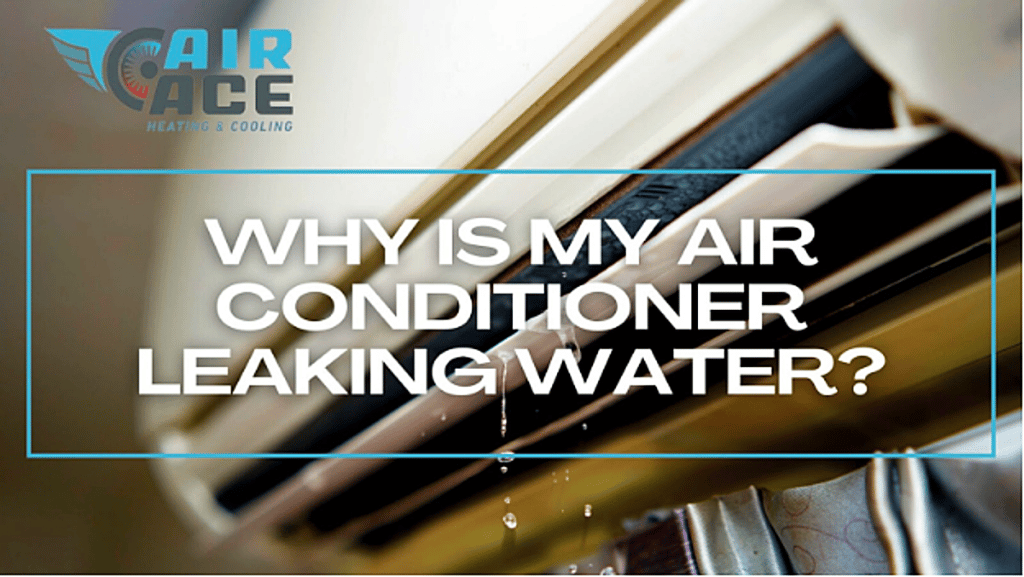
One of the most common causes of air conditioner leaking water is a buildup of debris and dirt on the coils. When the air conditioner coils are clogged, they can’t evaporate the refrigerant properly, causing it to leak out.
Another common cause of AC leaks is a damaged or worn-out gasket. The gaskets seal the joints between different parts of the AC, and if they’re not in good condition, the refrigerant can leak out.
Finally, leaks can also be caused by a cracked or leaking AC compressor. The compressor is responsible for pressuring the refrigerant, and leaks can occur if it’s not working correctly. If you suspect that your AC is leaking, you need to have it inspected by a professional as soon as possible. If left unchecked, leaks can damage your AC unit.
How can you tell if your AC is leaking water and needs repair?
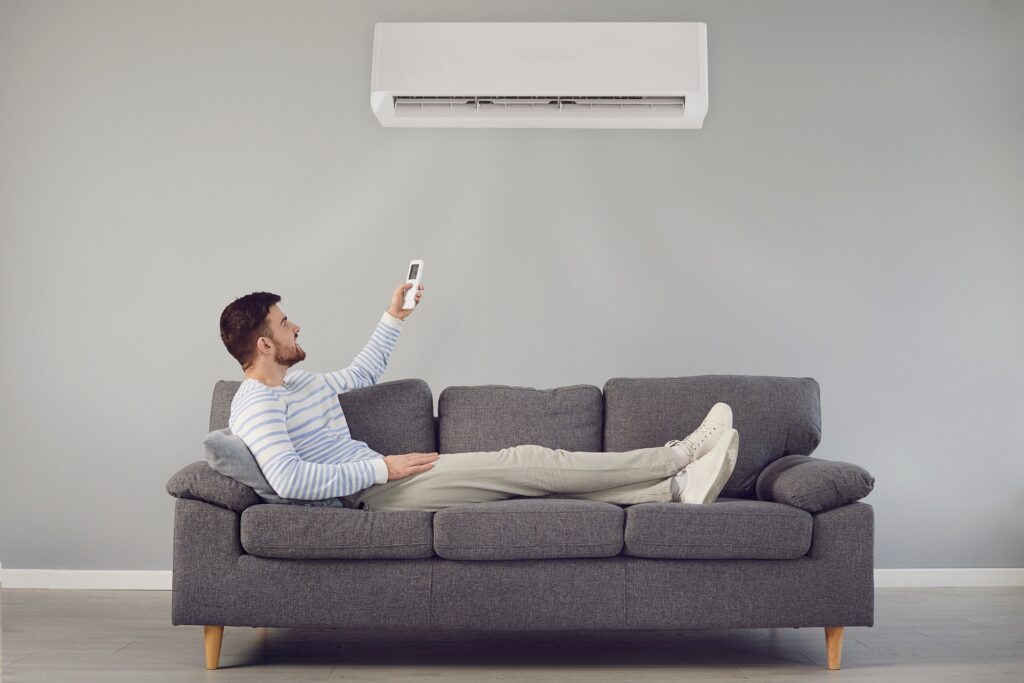
The air conditioner leaking water is a sign that your AC needs repair. If you see any water around your AC unit, immediately call a professional AC repair professional. AC units circulate air, not store or collect water.
When an AC unit leaks water, it means there’s a problem with the AC unit. Get the AC unit repaired as soon as possible since water leakage can cause issues such as poor circulation or insufficient cooling.
If you think your AC unit may be leaking water, don’t hesitate to call a professional AC repair company for an inspection and estimate.
AC Unit Leaking Water Due To Failed Condensate Pump
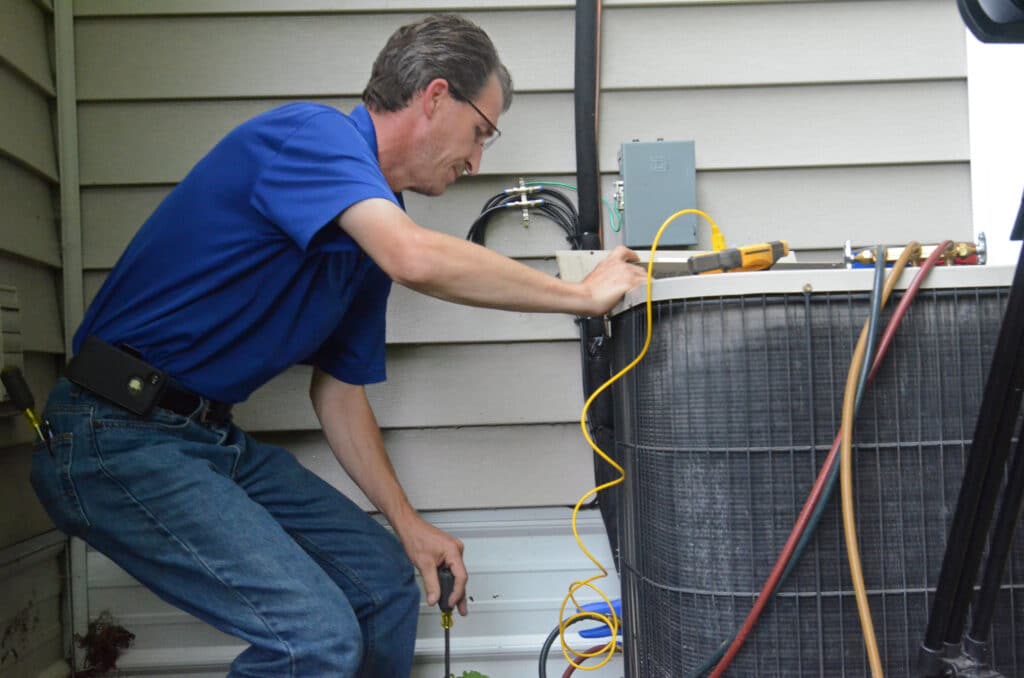
Your air conditioner is often located beneath the floor or in the attic. In homes with longer condensate pipes, the air condition unit is placed beneath the floor or in the attic. In such cases, a centrifugal pump moves the condensation away from the air conditioning unit. Once condensed evaporator coils have reached the maximum concentration in the tank, the float switch will activate. The centrifugal pump can fail if there is a leakage in the air conditioning system.
Air Conditioner Leaking Because Of Frozen Coil
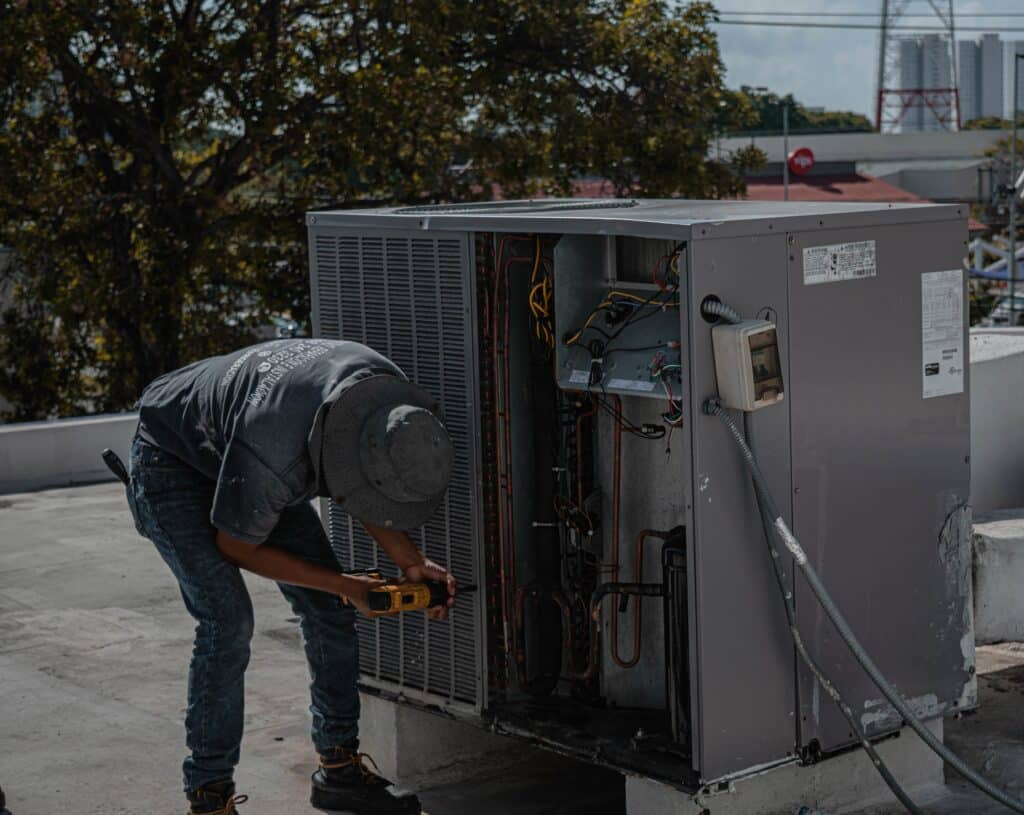
Evaporators and vaporizers can freeze if airflow and temperature drop if there is an issue. If the refrigeration leaks, the airflow may cause several problems with the AC unit – contaminated filters, leaky vents, or faulty fans and ducts. As you can imagine, the drain pan can catch dripping water from a typical cooling unit. But if your air conditioner is iced and ice is melting, dripping water will flood the drain pipe.
Air Conditioner is Leaking Water Due To The Damaged Drain Pan
The AC drain pan captures condensation from coils when they drip away. The drain pan configuration depends upon what type of electric system you use and where the pain is situated. Horizontal systems have a secondary drain pan that can catch runaway fluid from an air conditioner leaking water and may be advisable in a basement.
What are the consequences of not repairing a leaky air conditioner?
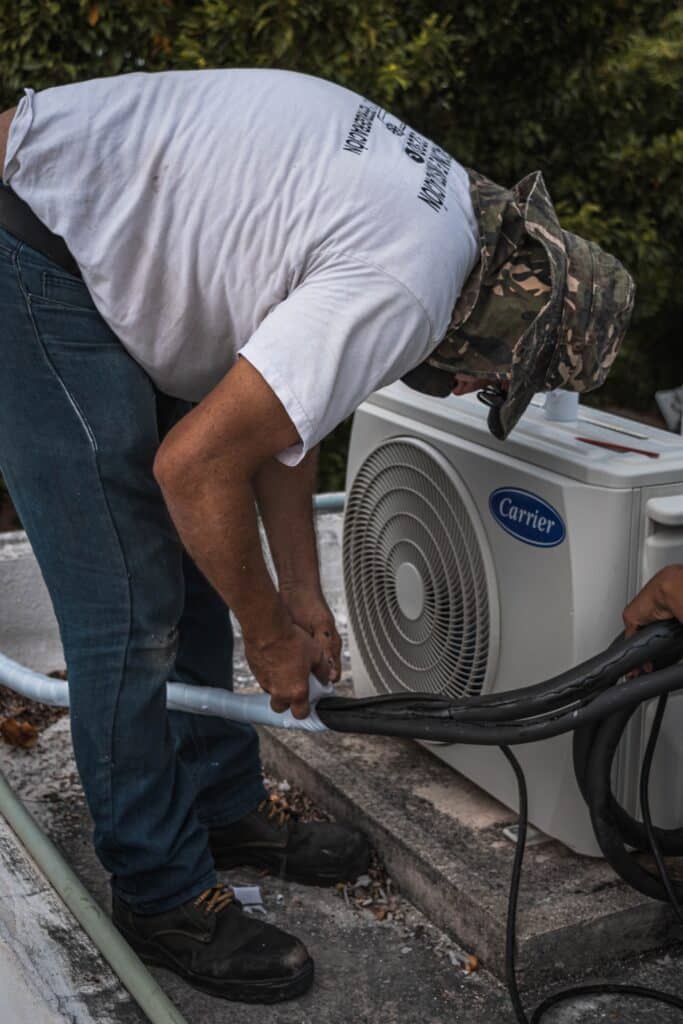
If you have a leaky air conditioner, it’s advisable to repair it as soon as possible. Otherwise, you may face several consequences. For one thing, your energy bills will go up as your air conditioner works harder to try to keep your home cool.
Additionally, your air conditioner may not be able to effectively remove humidity from the air, leading to a stuffy and uncomfortable environment. Moreover, if the leak continues unabated, it can cause damage to your air conditioner unit, requiring an expensive repair or replacement. So if you have a leaky air conditioner, don’t delay and repair it – the consequences could be costly.
How much will it cost to have your AC repaired?

Many factors can influence the cost of having your AC repaired. The first is the type of problem you are experiencing. A simple issue, like a clogged filter, may only require a service call. The more complex the problem, it might take time and money to repair the said issues.
The second factor is the age and condition of your AC unit. Older units may no longer be under warranty, which can increase the cost of repairs. Finally, the service fee can also differ from one company to another. In general, it is best to consult with a professional to get an estimate for AC repair costs.
Can you do the repairs yourself or do you need to call in a professional?
If you’re considering tackling a home repair project yourself, it’s wise to assess whether or not you have the skills and knowledge necessary to complete the job. Painting or changing out light fixtures does not require special training. Almost anyone can complete these tasks. Other repairs, however, are best left to professionals.
Often the case with electrical or plumbing work, as even a minor mistake can result in serious issues or damages. Another factor to consider is the cost of materials and tools. If you already have the necessary skills and equipment, then DIY may be the way to go.
However, if you need to purchase tools and materials, it’s important to calculate whether or not doing the job yourself will save you money. It may be more cost-effective to hire a professional from the get-go. When it comes to home repairs, there’s no single correct answer–you need to weigh all of your options carefully before making a decision.
What should you do if your AC unit stops working in the middle of summer?
During a heatwave, if your air conditioner suddenly stops working, it can be infuriating and troublesome. Before you call a technician, there are a few things you can do to try and troubleshoot the problem.
First, check if the unit is on and plugged in. Check if the circuit breaker is working. If everything appears in working order, check the thermostat to see if it needs new batteries.
If the AC unit is still not turning on, the evaporator coils may be frozen. In this case, you’ll need to turn off the unit and wait for the evaporator coils to thaw before restarting. If you’re still having trouble, it’s best to call a professional for help. With a little effort, you should be able to get your AC unit up and running again in no time.
Ultimately, take any issues with your air conditioner seriously. A small leak can quickly become a bigger problem if left unfixed, so address any issues as soon as they arise. With the correct maintenance and care, you can ensure that your AC unit runs efficiently for years to come.
Air Filter, is Dirty Can Be Why the AC Leaking Water?
The air filters in your air condition unit should be replaced every 1 to 3 months, depending on how often you use your AC unit. When an air filter becomes clogged with dirt and debris, it can cause condensation to accumulate instead of draining away from the unit. It can cause water to leak from the air conditioning unit. If the problem persists after replacing your air filter, contact a professional to inspect your unit and identify the source of the issue.
Other Recommended Maintenance
If you have AC units or heating equipment, make sure to maintain your equipment. AC and furnace maintenance should help prevent costly repairs for both. Another point worth checking is HVAC devices. These systems generally last up to ten years or more before needing to be replaced. You should check your system once every two years for aging. Depending on the condition of your air conditioner unit, you may need a replacement. Lastly, sealing the attics is very critical.
Conclusion:
Air conditioners are necessary during the summer, but if you want to cool down and enjoy summer, properly maintain your AC unit. By knowing the most common causes of air conditioners leaking water and taking steps to prevent them, you can help keep your AC unit running smoothly and save yourself some money in the process. If you experience a leak, don’t wait to call for repairs – the consequences could be costly. Have questions about how to detect or fix an air conditioning leak? Our team is here to help.
